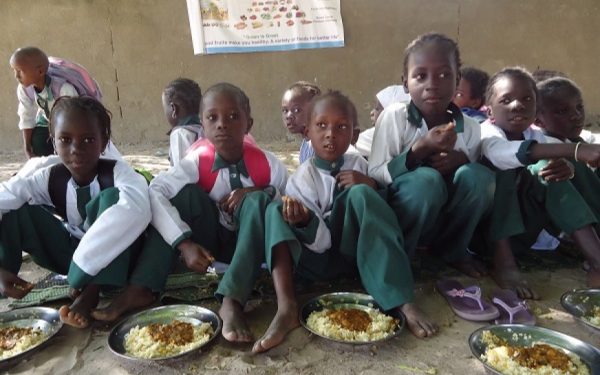
With a population of 1.9 million, the Gambia is faced with rising food insecurity, poverty and malnutrition, despite a promising environment for improved growth, stability and partnerships, a World Food Programme country report reveals.
According to the report, 48 per cent of the Gambian population lives below the national poverty line while 8 per cent are food insecure.
It said the March 2018 Cadre Harmonisé has estimated that 268,000 people are between March and May this year ‘under pressure’ and 45,000 are in ‘crisis’ and as the lean season (June-August) approaches; an upward trend in vulnerability is anticipated of up to 350,000 will be classified as ‘under pressure’ and 63,000 people will be in ‘crisis’ phase.
“This results from reduced/low food reserves in households during the lean season, due to decreased crop production in 2017 and fluctuating market prices for basic food commodities,” the report said.
It said the country’s progress towards Sustainable Development Goal (SDG) 2 is limited, given the high level of vulnerability to food insecurity coupled with the high prevalence of global acute malnutrition (GAM) in children aged 6-59 months and stunting rates above the national average, with a high of 24.9 per cent in four districts.
Quoting findings from a 2015 Standardized Monitoring and Assessment of Relief and Transitions (SMART) survey, the prevalence of global acute malnutrition has increased in the Gambia to 10.3 per cent, up from 9.9 per cent in the 2012 survey.
To help mitigate the impact, a joint WFP/FAO A-Envelop project, funded by the EU from the 11th EDF programme funds for the Gambia was officially launched this month.
In addition to supporting small holder farmers and value chain activities (FAO) the project will ensure the provision of daily school meals for 64,000 children in North Bank and Central River regions, as well as support the establishment of early warning systems and contingency plans for disaster risk reduction.

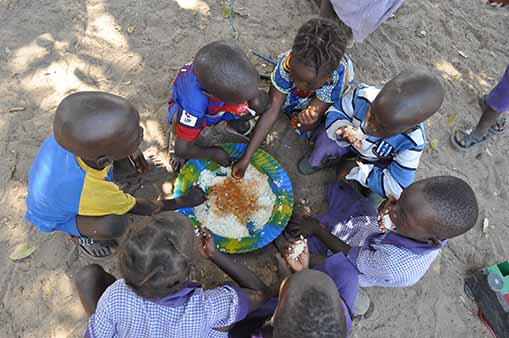
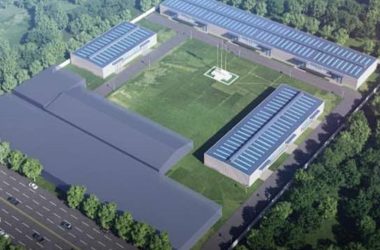
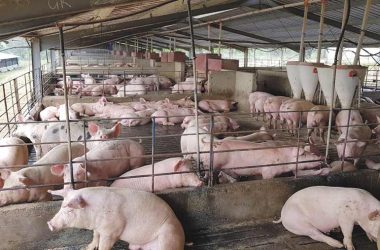
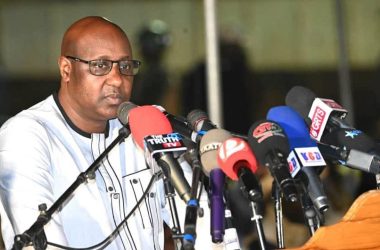

I hope brothers Madi, Yorro and all Gambian intellectuals who are at the moment totally focussed on “gay rights”, “information rights”, etc. etc. to turn their minds to this issue. Afterall, it is after “Right to Life” itself the SECOND “Human Right”.
Luntango, you are on point here.
The food security situation in The Gambia has been, from as far back as I can remember, precarious at best.
The Gambian situation has been, over the years, characterized by borrowing to fund projects and studies with a specific lifetime.
Once the project and study come to an end, those that represent policy makers in government simply move on to other seemingly pressing issues with little regard for important findings that simply go to collect dust on shelves, drawers and archives.
It’s little wonder that after spending millions of dollars on agricultural “projects” in the name of The Gambia, data can mostly be accessed from external sources such as universities and other institutions abroad.
Where meaningful effort is to be realized in reversing the dire food security situation, The Gambia and Gambians must push for certainty in funding, good leadership, commitment to sustainable policy and strategies targeting specific goals.
It’s a given fact that food security couldn’t be attained in the absence of food self-sufficiency. Gambian farmers are unable to save seed stocks for subsequent growing seasons because their families need every morsel to feed hungry mouths. This stark truth brings into question the farmers’ ability to provide for the inputs required to produce a healthy and successful crop.
Meanwhile, the government and the Ministry of Agriculture keep going back to donors and lenders for agricultural seeds and other farm inputs. When will government come to grips with the fact that we cannot borrow or beg our way to prosperity?
Folks, we can’t ever borrow our way to prosperity and here’s why.
1. The MARSHALL PLAN that helped to resuscitate Europe was a one off thing the likes of which will never be seen in Africa. The persistent message has been that Africa must pull herself up by the bootstrap.
2. The facilities that were extended to the Asian Tiger nations were clearly based on the western world’s belief that Asian nations can be counted on to pay their bills. Not so for Africa that may be perceived through deeply rooted racial undertones that promote the notion that Africa is inherently corrupt and therefore not worthy of wholesale financial and economic recovery plans.
3. The lending/restructuring plans promoted by the Breton Woods and other regional institutions have become largely unsustainable on account of the very nature of lending mechanisms plus the inherent inefficiencies to be realized at disbursement, implementation and evaluation. African nationals that work at these institutions are clear on the issues at hand but couldn’t bring about the desired changes as they do not call the shots.
4. The insistence on funding programs targeting food security through government institutions doesn’t not work as the collective will does not exist in The Gambia to see the effort through or that the appropriate roll out mechanisms can be enabled on the ground.
5. Donors and lending institutions keep echoing the sentiments of public servants that have little or no bearing to events on the ground. Ostensibly on the thought that a Gambian problem(s) are being addressed and therefore must show Gambian leadership to be politically correct. The fact is that the parties to the agreement neither do their homework as required nor do they commit to attaining the very goals being sought.
A new approach to agricultural development/food security must, in the interest of sustainability, start with Small and Medium Scale entrepreneurship (SME) that will operate outside of central government albeit taking advantage of strong and well equipped government support structures such as plant and animal disease management laboratories and quality management facilities.
It is important to have stand alone facilities of this nature if The Gambia is to compete well to make a name in the international market. We cannot be seen to be either complacent or embracing mediocrity in this area.
I would propose that The Gambia government, under a line item in the current or next budget, designates mandatory funds to specific and sustainable agricultural programs targeting FOOD CROP production/revolution. The government must for once admit that we are getting peanuts for a groundnut crop plus fluff for a cotton crop that are no longer serving The Gambia’s purposes.
Let’s focus on food crops that present lower demands on rural household labor, lower man hours per hectare and less post harvest handling. The rural farm labor simply doesn’t exist in most, if not all, of the regions.
I’d like to see the Ministry of Agriculture come up with tangible data on the man hours, the cost of seed, fertilizer and crop protection required to produce a hectare of groundnuts versus a hectare of maize, millet or Sorghum. We may find some interesting data that’ll make for good conversation.
It will be well worth the while to set up district youth agricultural associations that’ll be trained to access soft loans for crop production and marketing services for the object of refining the art of cereal crop production under the slogan, Feed The Nation. The government can then compliment the effort through well thought out compensation and incentive mechanisms that could take the form of grants to producer groups where clearly defined production targets have been met.
The Gambia government has for too long been drumming up the self serving messages of, “hard currency”, “foreign exchange earner”, diversification and balance of payments support while neglecting the open, hungry mouths and faces on the lower end of the energy continuum that have been staring at and still staring at our planners of today!!
It’s time to introduce game changing interventions!!!
Thanks Andrew but I find this topic too painful to discuss. It was also the last argument I had with Jammeh ten years ago; he arrested me the day after but my headline came out anyway as “Agricultural Army Battallion for The Gambia”. It seems all rulers across Africa pay lip service to agriculture while their people go hungry. Depressing.